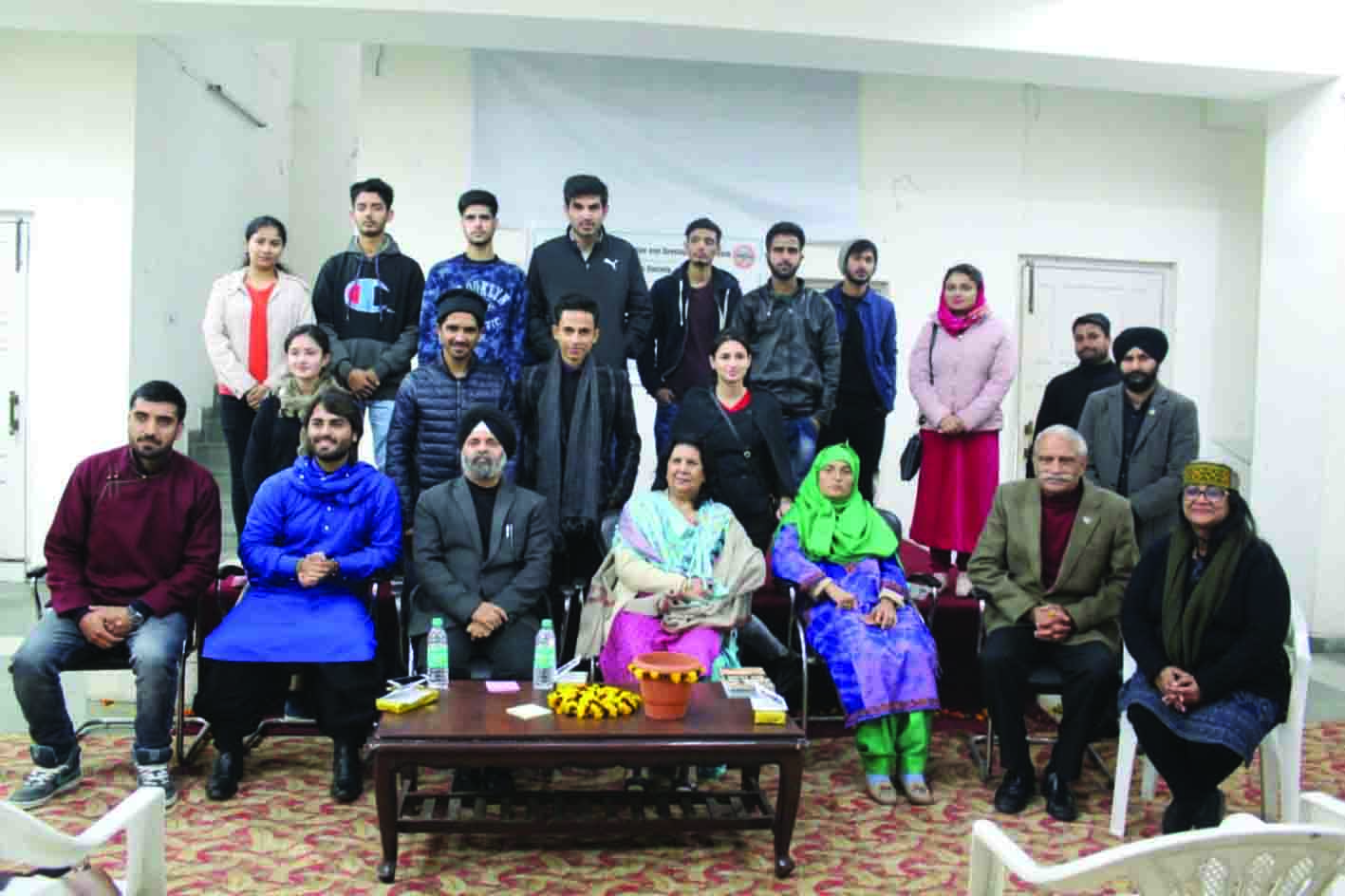 Early Times Report Early Times Report
Jammu, Jan 7:Yakjah Reconciliation and Development Network, a non -profit youth led social innovation in partnership with Kala Kendra, supported by Chamber of Commerce and Industry, Jammu organized 'Beyond Storyline', a Storytelling Session on 'Humanizing the Other: Listening, Understanding and Dialogue for Healing" at Kala Kendra.
Storytellers narrated stories, poems and excerpts from their book to share with a mixed group of young audience from Jammu, Kashmir, Ladakh, Doda, Rajouri to bring forth the human aspect of those who we most often perceive through their given singular identity. Through their stories they created a space for inquiry, reflection and healing. Ashima Kaul, founder of Yakjah Reconciliation and Development Network shared that stories have the power to transform both the narrator and the listener.
Through this storytelling session, we aim to bring forth the multiplicity of narratives in Jammu and Kashmir thereby creating a space for listening, understanding, healing and empathy. 'Stories have power to transform both narrator and listener. The narratives revealed that the core essence and nature of human pain and sense of loss isa global expression. We all cry laugh and love in the same way. This is our true identity. Not the one which is constructed and therefore fixated, for that drives us to hate, control and destruction.
Shashi Padha, author of several books including 'Shaurya Gathaayein' and 'Nirbeek Yodhaayon ki Kahaniyan' narrated two stories one of Captain Tushar Mahajan who was martyred during an encounter in Pampore, Kashmir and Captain Keshav Padha, her husband who in 1965 war reached out to a Pakistani old man and fulfilled his last wish by taking him to his homeland in Jalandar. She brought forth the humane aspect of soldiers who sacrifice their lives in the line of duty. Nawang Shesrap Panna, I/C Principal of Govt Higher Secondary School, Silmoo, Kargil and belonging to Aryan Valley in Batalik sector narrated the story of a Buddhist boy Tashi Namgyal from Garkhon village who transcended all social barriers to educate himself, his family, society and teamed and encouraged his children to give back to their homeland by providing access to good quality education to the locals.
Raja Sarfaraz, author of "Tears of Kashmir" read a poem and an excerpt from his book. He shared how imperative it is for the soul that one stops seeing and judging people through their constructed identities and tries to respect and connect to their true nature which is pure love. Then, Ashima Kaul read excerpts from Naveed Para and Majid Majaz's book "The Dying Whisper of a Never Born Child". "The Dying Whisper of a Never Born Child" is a contemporary, literary fiction, a conflict based story with a twist of romance. The poignant excerpt brought tears in the eyes of the audience of the conflict. But what stood out was the hope and positivity portrayed despite the pain and suffering. The book surely is a symbol of courage and resilience of the people of the valley.
While the authors recited the stories, the listeners reflected upon and took note of the thoughts that arose in their minds on scribbling papers. Those notes were discussed in a group discussion after the storytelling which was moderated by Ashima Kaul and Dr. Arvinder Singh Amn, Additional Secretary, Academy of Art, Culture and Languages. Some notes like, "Soldiers are humans first and there should not be any politics around them. They are our heroes and their acts of bravery should be celebrated" were simply expressions of the feelings the stories had evoked in the listeners. But there were some notes that which expressed the desire of the youngsters to come out of the box, shun the negative and mundane cycle of stereotyping and labelling people and vice versa.
Those notes read as follows, "The stereotypes in society are so strong that even though through my education and ideas, I developed a perspective of being 'tag-free' but implementation of those ideas is too difficult to some extent. So how can we greatly influence society for promoting equality and becoming 'tag-free'?", "To some extent the loopholes in today's education system make us selfish, radical and arrogant. Radicalisation is seen everywhere so the implementation of good ideas is not so successful. Personal Observation.".
Dr Arvinder Singh Amn appreciated the desire in the students to create solutions and beautifully explained to them they themselves are the solution spaces for working on one's own self is the way. If they stay persistent and dedicated in their journey, say, for example, of having a stereotype free society by striving relentlessly to end the prejudices they themselves hold for other people, then it would not take long for their vision to manifest outside. This resonated so much with Yakjah's philosophy of "Inner Activism".
The Yakjites who participated were Simran Kour, Akshay Kumar Sharma, Kannav Padha, Shahid Ayoub, Ahsanullah Dar, Arun, Kritika Bhatti, Simran Kaur, Navjot Singh, Janvi, and Diksha Bakshi. |
